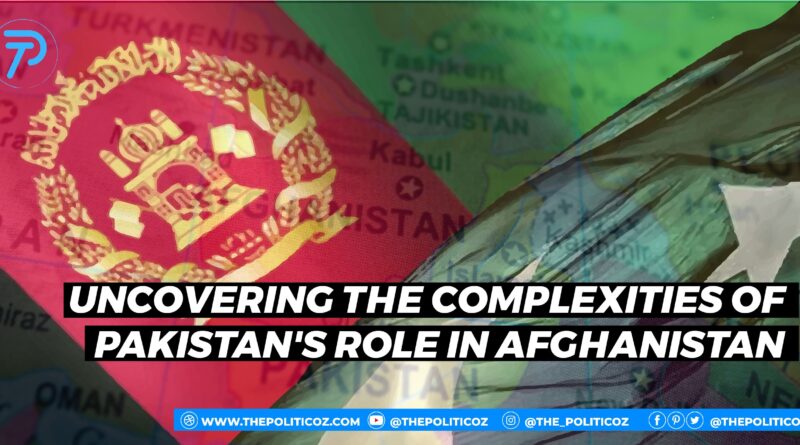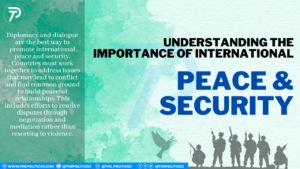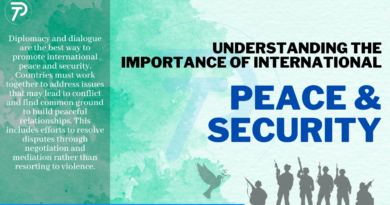Uncovering The Complexities Of Pakistan’s Role In Afghanistan
Uncovering The Complexities Of Pakistan's Role In Afghanistan
INTRODUCTION:
Afghanistan has a long and complex history, and its relationship with Pakistan has been shaped by several significant events.
In 1979, the Soviet Union (USSR) invaded Afghanistan in an attempt to support a pro-communist government in the country. The invasion led to a long and costly war, in which the Soviet military was eventually forced to withdraw. During this conflict, Pakistan played a crucial role in supporting the Afghan mujahideen fighting against the Soviet-backed government. Pakistan provided arms, training, and other forms of support to the mujahideen and served as a base for the resistance. After the Soviet withdrawal, Afghanistan descended into civil war as various factions vied for control of the country. In the 1990s, the Taliban, a hardline Islamist group, emerged as a significant player in Afghanistan and eventually seized control of the country. Pakistan was one of a few countries to acknowledge the Taliban as the legitimate government of Afghanistan and it provided the group with diplomatic and military support.
After the September 11th, 2001 attacks, the United States invaded Afghanistan and toppled the Taliban regime. Since then, Afghanistan has been embroiled in a lengthy and costly conflict with the Taliban, which has continued to this day. Pakistan has played a complex role in this conflict, at times supporting the Afghan government and at other times working with the Taliban.
MAJOR THREATS TO PAKISTAN:
There are several threats that Pakistan faces as a result of the instability in Afghanistan. Some of the major threats include:
- Terrorism: Afghanistan has been a haven for terrorists for many years, and some groups have used the country as a base to launch attacks against Pakistan. In particular, the Taliban and other extremist groups have carried out several attacks against Pakistani targets.
- Drug trafficking: Afghanistan is the world’s largest producer of opium, and drug trafficking from Afghanistan is a primary concern for Pakistan. The illegal drug trade fuels corruption and crime, and its profits are often used to fund terrorist activities.
- Refugee crisis: The ongoing conflict in Afghanistan has displaced millions, and many refugees have fled to Pakistan. This has put a strain on Pakistan’s resources and has contributed to social and economic problems.
- Border security: The border between Afghanistan and Pakistan is long and porous, and it is difficult to effectively patrol. This makes it easy for terrorists and other illegal actors to cross the border and carry out attacks in Pakistan.
- Diplomatic tensions: The instability in Afghanistan and the involvement of multiple international actors have contributed to diplomatic tensions between Afghanistan and Pakistan. This can make it difficult to cooperate on issues of mutual concern.
FUTURE OF PAKISTAN’S AFGHAN POLICY:
It is difficult to predict precisely what the future of Pakistan’s Afghan policy will be and what the implications will be for the region. However, Pakistan will likely play a significant role in Afghanistan’s future.
Pakistan has a long and complex history with Afghanistan, and it has a strong interest in the stability and security of its western neighbor. Pakistan has some economic, safety, and diplomatic interests in Afghanistan and will likely continue to be involved in efforts to stabilize the country.
That being said, Pakistan may take a more hands-off approach if the situation in Afghanistan improves and the country becomes more stable. The role of other international actors, such as the United States and China, could also increase in the future, which could lead to a race for the balance of power in the region.
Ultimately, the future of Pakistan’s Afghan policy will depend on many factors, including the evolution of the conflict in Afghanistan, the interests of other countries in the region, and the changing geopolitical landscape.
POSSIBLE STEPS TO TAKE TO ADDRESS THE SITUATION:
There are many steps that Pakistan can take to address the threats it faces as a result of the instability in Afghanistan:
- Improve border security: Pakistan can improve security along its border with Afghanistan by increasing the number of border patrols and improving intelligence gathering and analysis.
- Counter-terrorism efforts: Pakistan can work to disrupt and dismantle terrorist groups that operate within its borders, including those that have launched attacks against Pakistani targets from Afghanistan. This could include measures such as targeted military operations and law enforcement efforts.
- Address the refugee crisis: Pakistan can assist Afghan refugees by improving access to education and healthcare and working with the international community to develop a plan for their eventual return to Afghanistan.
- Promote economic development: Investing in economic development in Pakistan can help to create jobs and improve living standards, which can, in turn, help to reduce the appeal of extremist ideologies and make the country less vulnerable to terrorist attacks.
- Engage in diplomatic efforts: Pakistan can improve its relationships with Afghanistan and other countries in the region by participating in diplomatic efforts to bring about peace and stability in Afghanistan. This could include working with the Afghan government and other international actors to negotiate with the Taliban and other extremist groups.
Shoeb Hassan | Writer is Political Science Graduate from Karachi University
Why appointing New Chief of Army Staff (COAS) has always been challenging in Pakistan?
The query, 'What is State?' does not employ here to...
Read MoreUnderstanding the Importance of International Peace and Security
Understanding the Importance of International Peace and Security Introduction: It...
Read MoreUncovering The Complexities Of Pakistan’s Role In Afghanistan
Uncovering The Complexities Of Pakistan’s Role In Afghanistan INTRODUCTION: Afghanistan...
Read MoreThe Putin Factor: Unraveling the Complexities of the Russia-Ukraine War
In the realm of geopolitics, few conflicts have captured the...
Read MoreSearch for peace – Islamophobia
Indeed, hatred and bitterness can never bring peace but only...
Read MoreReigns of Kashmir
Despite sharing a 1,900-miles-long border with massive populations of 220...
Read MoreRegime Change in Pakistan: Conspiracy or Reality?
A US-backed regime change is nothing new; there are countless...
Read More











